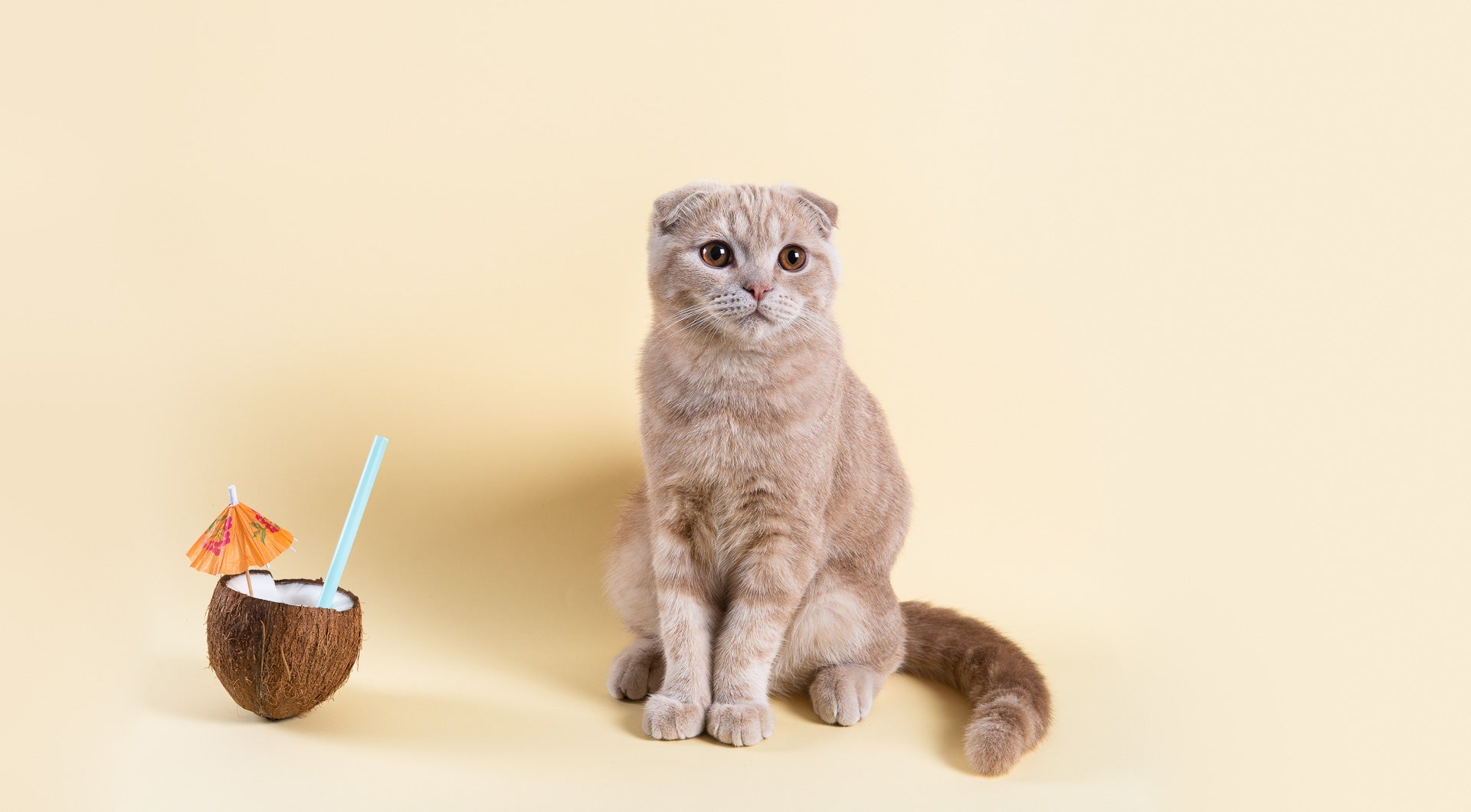
Coconut, an ingredient widely used in our day-to-day, in everything from baked goods to skincare products and at home natural remedies. With all the known benefits of coconut for humans, you may be wondering if it's something you should feed your cat, and how.
What you need to know
Although a safe ingredient for most cats, not all coconut products should be offered to your feline. Coconut in its most natural form, without sugar or other additives is safest (on occasion) and must be given in moderation. Cold-pressed or virgin coconut oil is recommended.
If your cat has special dietary needs or any health concerns, it is always best to confirm with your veterinarian whether it's safe to introduce new foods into your cats diet. In the case of coconut, some cats can be sensitive to it, especially those with pancreatic inflammation or sensitive stomachs.
If you choose to feed your cat coconut, be sure to provide it slowly, in small servings only.
Nutrition Info
Coconut provides a source of protein and many essential minerals which can benefit a cats immune and digestive systems, help with hairballs and improve bad breath.
Although a healthy snack, coconut is high in saturated fats and calories. As such, it must be fed to your cat carefully to avoid unhealthy weight gain, diarrhea and other issues.
Coconut Meat
The white, fleshy internal part of the coconut it considered coconut meat. The best way to feed coconut meat to your cat is in shredded form.
Coconut Water
The juice found inside immature green coconuts, also known as coconut water, does not contain much fat but is high in potassium. The high level of potassium in coconut water can easily cause hyperkalemia in cats and should be avoided.
Coconut Milk
Unlike coconut water, coconut milk is not naturally occurring. Coconut milk is made by soaking shredded coconut meat in water and then straining it to a milk-like consistency. If opting for store-bought coconut milk, avoid products with added sugars. And again, beware of coconut milks' high fat and calorie content.
Coconut Oil
Coconut oil is arguably the best form of coconut to give your cat. It can easily be mixed into your cats wet food and has very little taste, leaving it the perfect option for picky eaters. Like coconut meat and milk, coconut oil shares a similar fat and calorie profile - A little goes a long way. Although it can be given directly, coconut oil can also be mixed into your cats wet food.
Other Good Uses of Coconut Oil To Benefit Your Cat
When used externally, coconut oil can help with a variety of things, including:
Dry Skin
Overall Coat Health
Just beware that your cat will probably lick any applied oil from their fur.
Routine Ear Cleaning / Ear Mites
A few drops of coconut oil applied to your cats ear can soothe itchiness, help remove ear wax and even help get rid of ear mites.
Final Thoughts
Coconut in its most natural form can provide your cat with some benefits when ingested or even used externally (oil). Just be sure never to offer your cat coconut water as the potassium level can cause serious health problems. If your vet agrees, moderation and small portions can go a long way in promoting your cats health.
If you have given your cat coconut, have you found it beneficial? What were the results? Share your experience below.

Comments (0)
Back to Noots Cat Blog